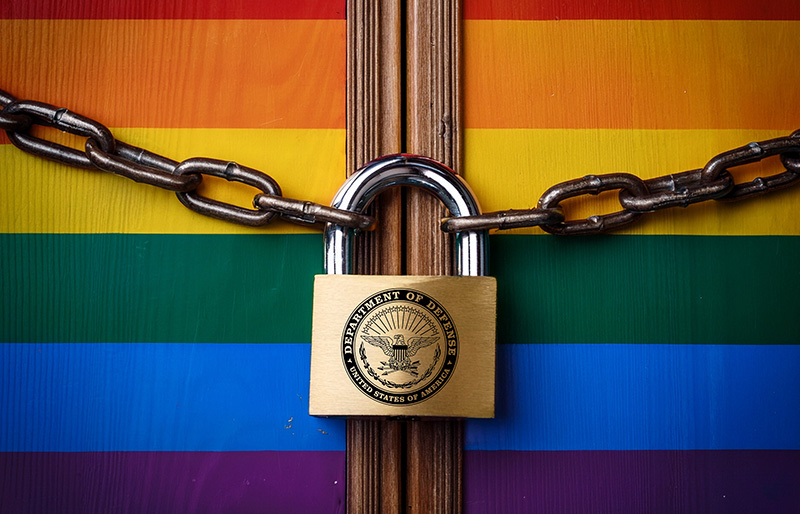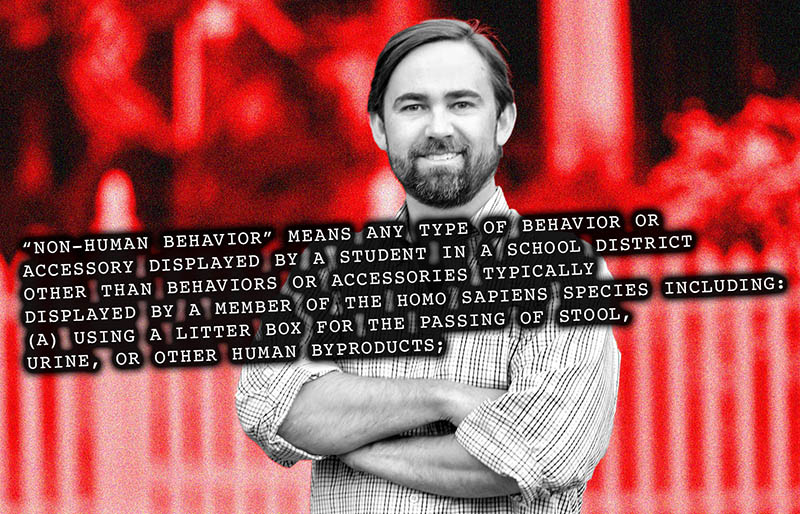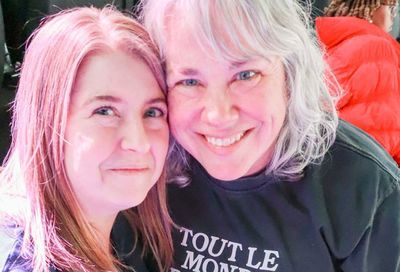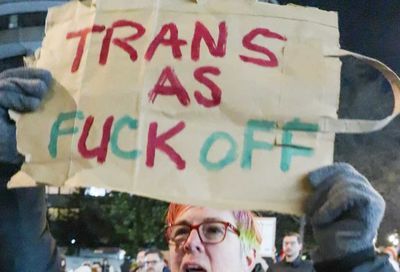Life Lessons
GLSEN conference brings LGBT students to Washington to learn about – and lobby for – safer schools legislation
When Dominque Walker went to Capitol Hill this week, she was taking up the work started by her mother, who lobbied Congress to ”mak[e] sure that other families don’t have to go through” what they experienced when a suicide shook their family.
Austin Laufersweiler, also on the Hill, offered on-point political analysis of how states’ rights concerns may stop Sen. Saxby Chambliss (R-Ga.) from supporting the legislation for which Laufersweiler is lobbying.
There’s just one thing about Walker and Lauferweiler that distinguishes them from the thousands of other lobbyists who regularly work the Capitol to push their issues: age. Walker is 16, Laufersweiler 17.
The two were among 16 other students and 20 adults participating in the Gay Lesbian & Straight Education Network’s (GLSEN) third annual Safe School Advocacy Summit, held March 21-23.
Alison Gill, a public policy associate with GLSEN, said that the Summit workshops on Sunday and Monday ”introduce them to the idea of lobbying, local organizing, getting out their message, telling their story, and some pretty intense training for two full days.” The lobbying efforts on Tuesday, March 23, focused attention on the Safe Schools Improvement Act (H.R. 2262) and the Student Non-Discrimination Act (H.R. 4530).
Openly gay Rep. Jared Polis (D-Colo.), the lead sponsor of the SNDA, spoke to the group on Monday, spending about 45 minutes with them – and bringing his partner’s dog. Mara Keisling, the executive director of the National Center for Transgender Equality, also spoke to the group.
Then, on Tuesday, the students and adults lobby their members and congressional staff in the House and Senate. With nearly 40 people representing 26 states, participants visited more than 80 offices.
Walker, a junior and the co-president of her Massachusetts high school’s Gay-Straight Alliance, said she was ”empowered” by the day, recalling the 2009 suicide of her brother, Carl Joseph Walker-Hoover.
”Students called him ‘gay,’ ‘faggot,’ anti-gay slurs. And, he really didn’t perceive himself to be either one, straight or gay,” she said. ”He thought the only way to get away from his torment was by killing himself, and that’s what happened.”
Referring to her lobbying the staff of Sen. Scott Brown (R-Ma.), she noted the liberal bent of her state and his Republican status, but then said, ”It actually went better than I thought it would.
”His staffer was really – he didn’t really know much about my brother – but he knew about Phoebe Prince,” another student who had committed suicide because of anti-LGBT bullying at school. ”After I explained my story, he said Scott Brown would look into it.”
Her mother, Sirdeaner Walker, has testified before Congress and the Massuchusetts legislature on safe-schools issues, a fact clearly taken to heart by Walker, who said, ”I want to work alongside my mom; I really want to see the Safe Schools Improvement Act passed.”
Laufersweiler – a senior at a high school in Marietta, Georgia – was honored previously as GLSEN’s ”Student Advocate of the Year,” and said, I’ve done lots with my school board trying . . . to get an amendment in our current bullying policy to get enumeration” of categories of types of bullying, such as that based on sexual orientation or gender identity.
Of his lobbying efforts, he said, ”My meetings definitely varied,” noting that his meeting with Rep. Tom Price (R-Ga.) was ”10 minutes in a hallway, just kinda nodding his head.”
”In contrast to that, with [Republican Georgia Sen.] Johnny Isaacson’s staff, we sat down at a long conference table, where I had two members of his stuff taking notes and actively asking questions and listening.”
In Sen. Chambliss’s office, he said, he was ”talking about the basic issues we were prepared for” and the staff member said it ”may not be ideal given Sen. Chambliss’s views, especially regarding states’ rights versus federal issues.”
One of the adults attending the Summit, Ashley Jackson is a coordinator with the Mississippi Safe Schools Coalition. She put the difficulty faced by those lobbying members thought to be unfriendly in a somewhat unique light.
”We have some very conservative senators in Mississippi,” she said. ”It’s really just trying to appeal to their emotions more so than the specific logistics of things.
”Usually if they hear ‘gay or lesbian,’ they kind of shut down,” Jackson said, adding that her aim is ”more of a, telling the story of the youth that I work with . . . so that they understand that it’s not just, ‘That happens to them,’ but, ‘This happens to us, in our state.”’
Jackson has been busy recently with the circumstances of Constance McMillen, the high-school student whose school canceled prom rather than allow her to bring a girl as her guest. The ACLU of Mississippi brought a case on McMillen’s behalf challenging the decision.
Although the judge hearing the case ruled on Tuesday afternoon that the school had violated McMillen’s First Amendment rights, he did not order the school to reinstate the prom – primarily because of the availability of another prom being organized by the Mississippi Safe Schools Coalition.
Calling it an annual event, Jackson said of the alternative prom, ”We moved it to northern Mississippi to be closer to [McMillen] … and we’re going to be including her entire school, if they want to come and … have a good time.”
Describing her efforts in D.C. – this was her second GLSEN lobby visit – and at home, Jackson summed up her efforts, saying, ”If we don’t protect them now, if we don’t make sure they have a safe learning environment now, they’re not going to be productive adults.”
More than protecting the students, GLSEN’s aims for the students also included empowerment. Of the lessons of the Summit, Laufersweiler said, ”I really have learned a lot.”
He added that he would be able to use the skills in his work at home, where he said, ”The school board has recently stated that they will consider the amendment of incorporating enumeration into the current policy.
”We’re making progress.”
Support Metro Weekly’s Journalism
These are challenging times for news organizations. And yet it’s crucial we stay active and provide vital resources and information to both our local readers and the world. So won’t you please take a moment and consider supporting Metro Weekly with a membership? For as little as $5 a month, you can help ensure Metro Weekly magazine and MetroWeekly.com remain free, viable resources as we provide the best, most diverse, culturally-resonant LGBTQ coverage in both the D.C. region and around the world. Memberships come with exclusive perks and discounts, your own personal digital delivery of each week’s magazine (and an archive), access to our Member's Lounge when it launches this fall, and exclusive members-only items like Metro Weekly Membership Mugs and Tote Bags! Check out all our membership levels here and please join us today!

























